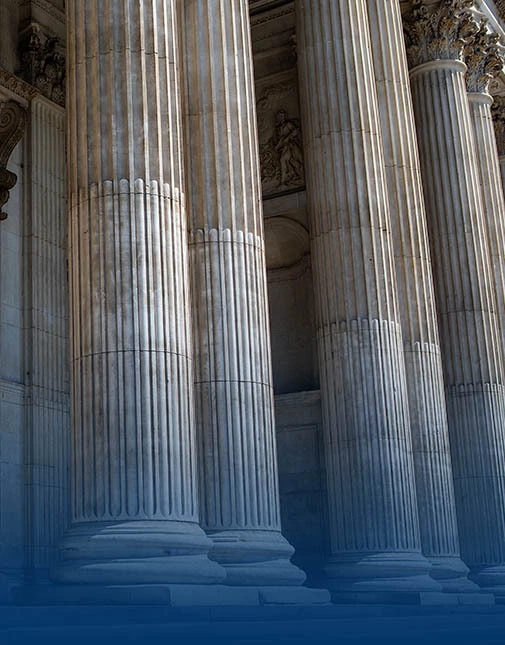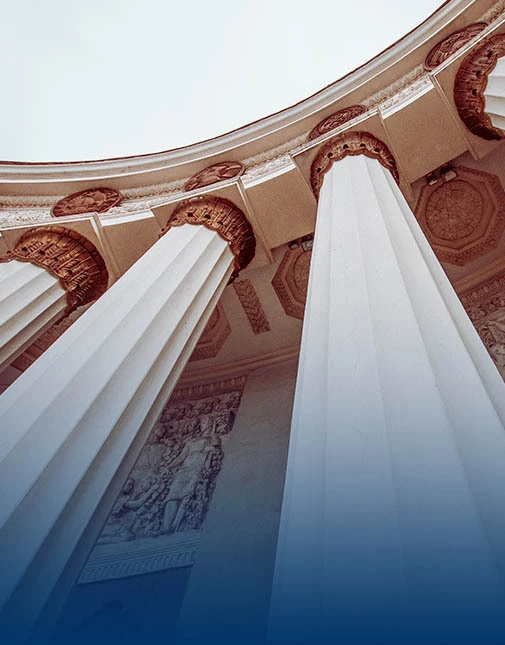
Overview
The former Solicitor General of West Virginia, Elbert co-chairs the firm’s issues and appeals practice group. He has led many precedent-setting cases in appellate courts across the country, including a US Supreme Court victory called “the court’s most severe rebuke of a president” since the Truman administration (The Washington Post 2016). Elbert has been described by clients as a “terrific oral advocate” (Chambers USA 2021) and an “amazing thinker [and] strategist” (Chambers USA 2024) who is "clear, understandable and persuasive" (Chambers USA 2025).
With experience in the private sector and multiple branches of government, Elbert’s practice spans a wide range of issues, including major questions of constitutional and administrative law at the federal and state levels. He has argued more than 70 cases in state and federal appellate courts, including before the US Supreme Court and several en banc courts of appeals.
In 2013, Elbert was appointed the Solicitor General of West Virginia. During his four-and-a-half year tenure, Elbert served as a member of the Attorney General’s senior management team, oversaw all civil and criminal appeals, and supervised the state’s federal litigation. He authored more than 25 briefs in the US Supreme Court and more than 45 formal Opinions of the Attorney General.
Earlier in his career, Elbert was a partner in the appellate and communications litigation groups of a national law firm and served as a trial attorney in the Federal Programs Branch of the US Department of Justice’s Civil Division, where he received a Special Service Award. He has also been a law clerk at all three levels of the federal judiciary: for Justice Clarence Thomas on the US Supreme Court; for Judge William H. Pryor Jr. on the US Court of Appeals for the Eleventh Circuit; and for Senior Judge Robert E. Keeton on the US District Court for the District of Massachusetts.
Elbert speaks regularly on a wide variety of topics, including constitutional law, administrative law, environmental law, state and federal relations, the US Supreme Court, and appellate practice. He has testified before Congress, and has spoken at the national conventions of the American Bar Association, the Association of Corporate Counsel, the National Asian Pacific American Bar Association, the Federalist Society, Americans for Prosperity, and the American Legislative Exchange Council.
Elbert is admitted to practice in the following federal courts: the Supreme Court of the United States; the First, Second, Third, Fourth, Fifth, Sixth, Seventh, Eighth, Ninth, Eleventh, D.C., and Federal Circuits; and the U.S. District Courts for the District of Columbia, the District of Massachusetts, the Eastern and Western Districts of Virginia, and the Northern and Southern Districts of West Virginia.
Experience
- Sackett v. EPA, 143 S. Ct. 1322 (2023) (represented amicus curiae in advancing an interpretation of the geographic reach of permitting requirements under the Clean Water Act that was adopted by the Supreme Court)
- Dewberry Engineers Inc. v. Dewberry Group, Inc., ,77 F.4th 265 (4th Cir. 2023) (obtained affirmance of permanent injunction and multi-million-dollar damages and fee award in trademark infringement case)
- Ramaco Resources, LLC v. Federal Insurance Company, 74 F.4th 255 (4th Cir. 2023) (obtained decision restoring multi-million-dollar insurance verdict on ground that district court misinterpreted policy language in amending the jury verdict)
- Union Electric Co. v. EPA, No. 23-1751 (8th Cir. 2023) (obtained stay of Environmental Protection Agency rejection of Missouri state implementation plan for compliance with ozone “good neighbor” requirements)
- Kentucky Chamber of Commerce v. EPA, No. 23-5345 (6th Cir. 2023) (obtained stay of EPA and US Army Corps’ 2023 “Waters of the United States” rule for members of the U.S. Chamber of Commerce and several other trade associations)
- Kentucky Chamber of Commerce v. EPA, No. 23-5345 (6th Cir. May 10, 2023) (obtained injunction pending appeal of new rule defining “Waters of the United States” for purposes of Clean Water Act jurisdiction)
- Blankenship v. NBCUniversal, LLC, et al., 60 F.4th 744 (4th Cir. 2023) (defended news organization against claim of defamation by former candidate for US Senate).
- State v. Beaver, No. 22-616, 2022 WL 17038564 (W. Va. Nov. 17, 2022) (represented amici curiae in defending constitutionality of West Virginia’s education savings account law).
- West Virginia v. EPA, 142 S.Ct. 420 (2022) (represented intervenor defending EPA’s repeal of prior administration’s Clean Power Plan under the “major questions doctrine”).
- Page v. Oath Inc., 270 A.3d 833 (Del. 2022) (obtained positive decision for news organization in opinion providing important guidance on key principles of defamation).
- New York State Rifle & Pistol Ass’n., Inc. v. Bruen, 142 S. Ct. 2111 (2022) (represented Asian Pacific American Gun Owners Association in amicus brief cited in concurring opinion).
- Steven Recht v. Patrick Morrisey, 32 F.4th 395 (4th Cir. 2022) (argued as counsel for amicus curiae supporting West Virginia in First Amendment case defending first-of-its-kind state law prohibiting certain deceptive attorney advertisements).
- SWN Production Company, LLC v. Kellam, 875 S.E.2d 216 (W.Va. 2022) (briefed and argued certified questions concerning vitality of several West Virginia high court decisions governing oil-and-gas leases).
- In re Yahoo! Inc. Customer Data Security Breach Litigation, No. 20-16633, 2022 WL 2304236 (9th Cir. June 27, 2022) (defended class action settlement arising from a data breach).
- Serna v. Northrop Grumman Sys. Corp., No. 21-55238, 2022 WL 2702569 (9th Cir. July 12, 2022) (defended arbitration decision and obtained opinion reaffirming, among other things, that arbitration clauses may require arbitration of future claims even if the clause has expired or been superseded).
- Connor v. Covil Corporation, 996 F.3d 143 (4th Cir. 2021) (obtained affirmance in opinion setting forth significant new guidance on the question of substantial-factor causation in mesothelioma cases).
- Young v. Equinor USA Onshore Properties, Inc., 982 F.3d 201 (4th Cir. 2020) (obtained reversal in opinion setting forth important new guidance on interpretation of oil-and-gas leases in West Virginia).
- U.S. Army Corps of Engineers, et al. v. N. Plains Res. Council, et al., No. 19A1053, 2020 WL 3637662 (U.S. July 6, 2020) (obtained stay of district court order imposing nationwide injunction of general Clean Water Act permit).
- County of Maui v. Hawai‘i Wildlife Fund, 139 S. Ct. 1164 (2020) (obtained certiorari and vacatur of lower court judgment requiring federal permit under Clean Water Act for discharge into navigable waters).
- Diageo Dominicana, S.R.L. v. United Brands, S.A., No. 3D18-1989, 2020 WL 2892566, at *1 (Fla. Dist. Ct. App. June 3, 2020) (obtained reversal on appeal of jury verdict finding breach of implied covenant of good faith and fair dealing and for affirmance on cross-appeal of trial court’s denial of motion for new trial).
- Johnston v. Regal Entertainment Group, 787 F. App'x 413, 414 (9th Cir. 2019) (obtained affirmance of decision, in case of first impression, refusing to require movie theaters to create closed captioning under the Americans with Disabilities Act).
- Page v. United States Agency for Glob. Media, 797 F. App'x 550 (2d Cir. 2019) (defended decision dismissing defamation action against Oath, Inc.).
- In re del Valle Ruiz, 939 F.3d 520 (2d Cir. 2019) (defended decision finding that district court lacked personal jurisdiction to order Spanish bank to produce documents in aid of a foreign proceeding).
- Morrisey v. W. Virginia AFL-CIO, 842 S.E.2d 455 (W. Va. 2020) (counsel for US Chamber of Commerce supporting West Virginia Attorney General’s appeal overturning permanent injunction issued against state’s right to work law).
- State ex rel. Blankenship v. Warner, 825 S.E.2d 309 (W. Va. 2018) (represented West Virginia Republican Party as intervenor in case affirming constitutionality of state’s “sore loser” law barring candidates who lose in primary election from running as independents in general election).
- St. Mary’s Medical Center, Inc. v. Steel of West Virginia, Inc., 809 S.E.2d 708 (W. Va. 2018) (obtained, in case of first impression, reversal of order compelling West Virginia Attorney General to disclose antitrust investigation documents under state Freedom of Information Act).
- McNair v. Johnson & Johnson, 818 S.E.2d 852 (W. Va. 2018) (argued for and obtained opinion rejecting new theory of innovator liability seeking tort relief against drug manufacturers for products they did not make or sell).
- Christie v. National Collegiate Athletic Association, 137 S. Ct. 2327 (2017) (lead counsel for five states as amici curiae obtaining grant of certiorari, over opposition by the United States, in constitutional challenge to a federal statute concerning sports gambling).
- Morrisey v. West Virginia AFL-CIO, 804 S.E.2d 883 (W. Va. 2017) (obtained, on behalf of State of West Virginia and West Virginia Attorney General, reversal of preliminary injunction issued against state’s right-to-work law).
- Lund v. Rowan County, NC, 863 F.3d 268 (4th Cir. 2017) (en banc) (argued on behalf of 13 states as amici curiae on question of first impression concerning constitutionality of exclusively lawmaker-led legislative prayer at a county commission meeting).
- Samples v. Ballard, 860 F.3d 266 (4th Cir. 2017) (argued before Fourth Circuit, in case of first impression, that federal district court need not review de novo unexhausted habeas corpus claims not previously raised in the case).
- State v. Butler, 799 S.E.2d 718 (W. Va. 2017) (argued on behalf of West Virginia Attorney General as amicus curiae in case refusing application of the state’s hate-crimes law).
- State v. Peterson, 799 S.E.2d 98 (W. Va. 2017) (argued on behalf of the State of West Virginia in case affirming that prosecutor’s failure to disclose alleged statement by witness was not a Brady violation).
- Gray v. Ballard, 848 F.3d 318 (4th Cir. 2017) (argued for and obtained denial of habeas corpus in a case establishing the standard for due diligence in the Fourth Circuit under 28 U.S.C. § 2254(d)(1)(D)).
- West Virginia v. EPA, No. 16-1363 (D.C. Cir.) (en banc) (argued on September 27, 2016, on behalf of 27 states in a case challenging EPA’s Clean Power Plan).
- Lund v. Rowan County, NC, 837 F.3d 407 (4th Cir. 2016) (represented 13 states as amici curiae on question of first impression concerning constitutionality of exclusively lawmaker-led legislative prayer at a county commission meeting).
- State v. Louk, 786 S.E.2d 219 (W. Va. 2016) (argued on behalf of the State of West Virginia that individual whose unborn child died due to drug use could be charged with criminal child neglect).
- State ex rel. Biafore v. Tomblin, 782 S.E.2d 223 (W. Va. 2016) (argued on behalf of the State of West Virginia as amicus curiae in case holding that vacancy for a resigning state senator, who had changed political parties mid-term, must be filled by member of the resigning senator’s party at the time of the resignation).
- Ross v. Blake, 136 S. Ct. 1850 (2016) (lead counsel for 22 states as amici curiae supporting petitioner’s position in case involving exhaustion requirement under the Prison Litigation Reform Act).
- US Army Corps of Engineers v. Hawkes, 136 S. Ct. 1807 (2016) (lead counsel for 23 states as amici curiae supporting respondent’s position in case concerning the appealability of a determination by the US Army Corps that certain waters or lands are subject to federal jurisdiction).
- Franchise Tax Board of California v. Hyatt, 136 S. Ct. 1277 (2016) (lead counsel for 44 states as amici curiae supporting petitioner in case where Supreme Court divided evenly on question of a state’s sovereign immunity in courts of other states).
- West Virginia v. EPA, 136 S. Ct. 1000 (2016) (obtained, as lead counsel on behalf of 29 states and state agencies, first ever stay from US Supreme Court of an agency rule while the merits of the rule are being reviewed in lower courts).
- Reed v. Town of Gilbert, 135 S. Ct. 2218 (2015) (lead counsel for 10 states as amici curiae supporting petitioner’s First Amendment challenge to town ordinance regulating signs based on content).
- Plumley v. Austin, 135 S. Ct. 828 (2015) (Thomas, J., dissenting from denial of certiorari) (sought certiorari on behalf of State of West Virginia from a grant of habeas corpus on grounds of judicial vindictiveness).
- In re Clean Water Rule: Definition of “Waters of the United States,” 140 F. Supp. 3d 1340 (J.P.M.L. 2015) (argued on behalf of 18 states against an effort by the federal government to centralize pretrial proceedings for multiple challenges in federal district courts to rule defining the Clean Water Act’s jurisdictional term “Waters of the United States”).
- In re EPA, 803 F.3d 804 (6th Cir. 2015) (obtained nationwide stay on behalf of 18 states against EPA and US Army Corps’ “Waters of the United States” Rule).
- West Virginia Dept. of Health & Human Resources v. E.H., 778 S.E.2d 643 (W. Va. 2015) (argued on behalf of state agency that state trial court order mandating pay raises at state-run psychiatric hospitals violated constitutional separation of powers).
- Watkins v. Rubenstein, 802 F.3d 637 (4th Cir. 2015) (argued for and obtained reversal of a grant of habeas corpus in a case involving a claimed Brady violation).
- Christian v. Ballard, 792 F.3d 427 (4th Cir. 2015) (argued for and obtained denial of habeas corpus in a case involving alleged ineffective assistance of counsel).
- In re Murray Energy Corp., 788 F.3d 330 (D.C. Cir. 2015) (argued on behalf of 12 states as petitioner-intervenors that EPA should be prohibited from finalizing proposed Clean Power Plan rule).
- State v. Gum, 764 S.E.2d 794 (W. Va. 2014) (argued on behalf of the State of West Virginia in case holding that the constitutional right to a jury trial does not apply to hearings for an incompetent defendant to establish defenses, because such hearings are civil and not criminal).
- Calvary SPV v. Morrisey, 752 S.E.2d 356 (W. Va. 2013) (argued in case holding that the West Virginia Attorney General has authority to issue investigative subpoenas under the West Virginia Consumer Credit and Protection Act).
- State v. Lambert, 750 S.E.2d 657 (W. Va. 2013) (argued in case holding that statement of non-testifying child to mother was not hearsay and therefore did not violate the Confrontation Clause).
- Conference Group, LLC v. FCC, 720 F.3d 957 (D.C. Cir. 2013) (defended FCC order against challenge alleging failure to provide for notice and comment).
- Dow AgroSciences LLC v. National Marine Fisheries Service, 707 F.3d 462 (4th Cir. 2013) (obtained decision reversing as arbitrary and capricious a “biological opinion” issued by the National Marine Fisheries Service on the effects of certain pesticides).
- Obama for America v. Husted, 697 F.3d 423 (6th Cir. 2012) (represented the Ohio Secretary of State against a constitutional challenge to elimination of certain in-person early voting opportunities).
- Litman v. Cellco Partnership, 655 F.3d 225 (3d Cir. 2011) (defended arbitration clause on ground that New Jersey law forbidding class arbitration waivers was preempted by Federal Arbitration Act).
- Comcast Corp. v. FCC, 600 F.3d 642 (D.C. Cir. 2010) (obtained order finding unlawful FCC’s first attempt at a “net neutrality” order).
- Globalstar, Inc. v. FCC, 564 F.3d 476 (D.C. Cir. 2009) (defended FCC order reassigning block of electromagnetic spectrum against challenge alleging order was arbitrary and capricious).
- Williams v. Johanns, 498 F. Supp. 2d 113 (D.D.C. 2007) (obtained order sanctioning opposing counsel for failure to respond to discovery).
- National Family Planning and Reproductive Health Ass’n v. Gonzales, 391 F. Supp. 2d 200 (D.D.C. 2005) (opposed preliminary injunction claiming that federal statute governing Title X funding was unconstitutionally vague, a violation of the Spending Clause, and an unconstitutional delegation to an executive agency).
- Lepp v. Gonzales, 2005 WL 1867723 (N.D. Cal. Aug. 2, 2005) (argued against a Religious Freedom Restoration Act claim concerning federal government’s seizure of marijuana plants).
Accolades
Honors & Recognitions
- Shortlisted for Appellate Litigator of the Year and Constitutional Law Litigator of the Year, Benchmark Litigation US Awards, 2026
- Selected as one of the 2025 Legal Elite, Virginia Business magazine, 2025
- Recognized as a Leader in Appellate Litigation, Virginia, Chambers USA, 2021-2025
- Recognized as a Leader in Commercial Litigation, Virginia, Chambers USA, 2021-2025
- Named a Litigation Star, Virginia, Benchmark Litigation, 2022-2026
- Named Lawyer of the Year (2025) and Best Lawyer for Appellate Practice (2024-2025), The Best Lawyers in America
- Recognized as a ‘Go To Lawyer’ for appellate law by Virginia Lawyers Weekly, 2023
- Selected as a Super Lawyer for Appellate, The Washington Post Magazine and Virginia & West Virginia Super Lawyers Magazine, 2022-2025
-
Named one of Virginia Business magazine’s Legal Elite for Appellate Law, 2020-2024
- Named Future Star by Benchmark Litigation, 2021
- American Academy of Appellate Lawyers, Elected 2020
- Selected as Litigation Trailblazer, The National Law Journal, 2019
- American Law Institute, Elected 2018
- Recognized as Generation Next 40 Under 40, West Virginia State Journal, 2015
- Selected as Future 40, Maverick PAC, 2014
- Selected as a Rising Star, Asian Pacific American Bar Association of the Greater Washington DC Area, 2013
Affiliations
Professional
- Member, New Civil Liberties Alliance (NCLA) Board of Advisors
- Senior Fellow, Administrative Conference of the United States, 2025-present; Public Member, 2020-2025
- Member, John Marshall Inn of Court
- Member, The Federalist Society, Federalism and Separation of Powers Practice Group Executive Committee, 2013–present; Telecommunications and Electronic Media Practice Group Executive Committee, 2011–2013
- Member, Yale College Alumni Schools Committee
- Fellow, American Academy of Appellate Lawyers
Insights
Legal Updates
Events & Speaking Engagements
Publications
Blog Posts
Podcasts
 January 31, 2024
January 31, 2024Each year, lawyers from the office of the solicitor general, or the SG for short, appear before the Supreme Court to argue on behalf of the federal government, but who argues on behalf of the states?
News
Education
JD, Yale Law School, Managing Editor, The Yale Law Journal, 2003
BA, Yale University, magna cum laude, Distinction in the Major, Tau Beta Pi, 1999
Admissions
District of Columbia
Massachusetts
Virginia
West Virginia
Courts
Supreme Court of the United States
US Court of Appeals, First Circuit
US Court of Appeals, Second Circuit
US Court of Appeals, Third Circuit
US Court of Appeals, Fourth Circuit
US Court of Appeals, Fifth Circuit
US Court of Appeals, Sixth Circuit
US Court of Appeals, Seventh Circuit
US Court of Appeals, Eighth Circuit
US Court of Appeals, Ninth Circuit
US Court of Appeals, Eleventh Circuit
US Court of Appeals, District of Columbia Circuit
US Court of Appeals, Federal Circuit
US District Court, District of Columbia
US District Court, District of Massachusetts
US District Court, Southern District of West Virginia
US District Court, Northern District of West Virginia
US District Court, Eastern District of Virginia
US District Court, Western District of Virginia
Government Service
Solicitor General, West Virginia, 2013-2017
Trial Attorney, Federal Programs Branch, Civil Division, US Department of Justice, 2004-2006
Clerkships
- Supreme Court of the United States
- US Court of Appeals, Eleventh Circuit
- US District Court, District of Massachusetts



